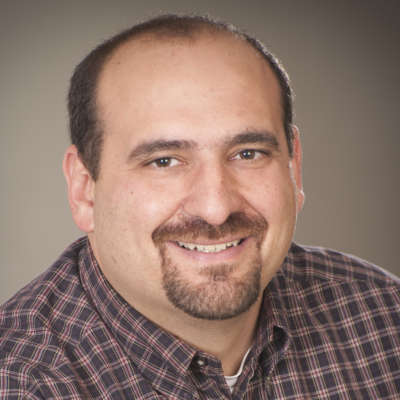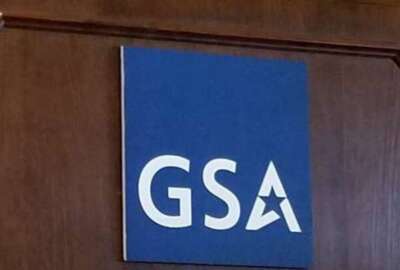Insight By Booz Allen Hamilton
Digital transformation journey starts with understanding user’s needs
Jeff Fossum, senior vice president at Booz Allen Hamilton, said agencies need to take a holistic view of their digital transformation effort, or face new systems or...
Some of the best ways for agencies to take advantage of the opportunity to improve and make their mission areas more effective is through the power of digital transformation.
But it’s not just a flip of the switch or an infusion of new technology. The digital transformation is as much about technology as it is about culture and process change.
Agencies must answer several questions before and during the digital transformation journey. These include:
What changes in culture, strategy, leadership, and innovation are needed to harness emerging and disruptive technologies?
How can leaders drive humans and machines to enhance mission delivery or competitive advantage?
As government agencies increasingly use the power of digital to deliver services to clients and citizens, what challenges do they face with IT modernization and digital transformation?
Jeff Fossum, senior vice president at Booz Allen Hamilton, said agencies need to take a holistic view of their digital transformation effort or face new systems or processes that miss the mark and impacts citizen satisfaction.
“I often refer to this as the Field of Dreams syndrome where we often time see a client who has this mindset of ‘we will build it and they will come and they will use it,’” Fossum said. “I saw a particular example in one of our major departments where they started out on this journey, picked a technology solution, but really didn’t engage fully with the users and changed the business processes. They put it out there in production and claimed victory. They had absolutely no adoption. The system absolutely failed and was taken out of production. The users went back to their legacy system, and got their job done, but missed a great opportunity to improve things.”
Fossum said the agency is starting down the modernization path again, but with a more holistic view that takes into account the past mistakes.
He said what’s critical in modernization efforts is getting user buy-in and shared ownership of the project’s success.
“The user community of today is very different than it was 20 years ago. It’s mobile. It’s impatient. It’s looking for responsive, very visual kinds of designs. So you really have to get out and engage your users and see how they do their work, or engage with your current system if you have any hope of building an improved modernized system that meets their expectations,” he said.
To meet the needs of a wide user base, Fossum said user engagement through focus groups, online surveys and other channels works well. But it is also why the dev/ops or agile approach to systems development makes so much sense.
“It’s really important that we plan for the long term. Once we go to production, you have to make sure you know implicitly how folks are using the system and be responsive to the changes that they are demanding so you keep the adoption rate high,” Fossum said.
Agencies are making progress in using agile and dev/ops processes. Fossum said agencies are looking for coaching, improving contracts and open to retraining.
Fossum said dev/ops may have a faster acceptance rate than agile.
“What we find commonly around government, there are a lot of existing IT solutions that are expensive to operate, but are critical. They would like to realize a more streamlined, efficient operational platform for their IT and dev/ops is a promise to help really address that issues by bringing streamlined, effective and efficient operations and maintenance to a lot of federal systems out there,” he said. “I think one of the keys to that is we’ve got a lot of excitement around ‘I want dev/ops for my agency or my particular mission and I want it now,’ but you really have to pause and make an assessment of how ready are you to begin this journey on this dev/ops vector. It’s not something that happens overnight so you have to control expectations.”
Host
 Jason Miller
Jason Miller
Jason Miller is a reporter whose work focuses mainly on technology and procurement issues, including cybersecurity, e-government and acquisition policies and programs.
Guest
 Jeff Fossum, Senior Vice President, Booz Allen Hamilton
Jeff Fossum, Senior Vice President, Booz Allen Hamilton
Jeff Fossum is one of Booz Allen’s Digital Solutions leaders. He drives Digital Solutions capture, delivery, and talent management for the firm’s Finance, Energy & Economic Development business. He has 35 years of commercial and government technology consulting experience and is a recognized expert in large-scale, complex systems architecture, design, development, and operations.
Jeff is supporting several government clients, including U.S. Treasury, Department of Labor, Department of Agriculture, Pension Benefit Guarantee Corp., and the National Science Foundation.
Jeff also designed and implemented the Digital Solutions risk and quality management program to cover the more than 350 active projects providing predictable, high-quality systems for our clients. Program accomplishments include:
- Achieved industry standard Capability Maturity Model Integration for Development (CMMI-DEV) Maturity Level 5 (ML5) rating (July 2016), making Booz Allen only one of 30 U.S.-based systems development providers possessing an active ML5 rating
- Created a senior coaching cohort that has trained and certified more than 1,600 staff in modern agile methods, making Booz Allen an industry leader in number of certified agile professionals
- Established the Digital University as a continuous learning and community development function for our 5,000 systems development professionals, which includes agile, DevOps, and cloud computing departments
Jeff worked for Booz Allen for 20 years overall. He returned in 2005 after serving as chief technology officer and senior vice president of two brokerage firms, where he focused on the application of systems and advanced technology in the financial services industry.
Jeff earned a B.S. in computer science from North Dakota State University and an M.S. in computer science from George Washington University.
Copyright © 2025 Federal News Network. All rights reserved. This website is not intended for users located within the European Economic Area.







